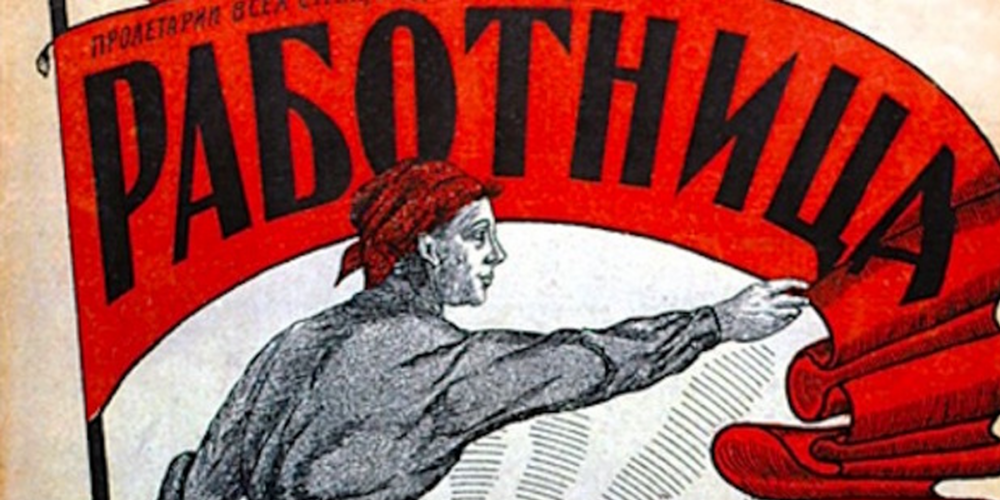Progress is never linear, consistent, smooth or at a fixed rate. Class consciousness, and its militant organisation, in the west is at a low-ebb right now, however, anti-imperialist struggle is renewed in many parts of Africa, Asia and Latin America. New global alliances and formations, although not always socialist, are disrupting western hegemony.
This resistance is often expressed in cultural, nationalist, religious or tribal forms, while in a few cases explicitly socialist, as opposed to in the twentieth century where it more often took shape in secular socialist or national liberation tendencies.
This is not to romanticise or idealise the past but it is to reflect on the material and ideological force that was the existence of the Soviet Union and how that framed resistance and struggle globally. The achievements, priorities and rhetoric of the USSR shaped struggle and outcomes all over the world. This article will note just a few.
Women won the right to vote on equal terms with men in 1917 making it the first European nation to do this. The new states Constitution explicitly guaranteed equality. Alesandra Kollontai became the first female Government Cabinet Minister in a European State and then later also became the first female Ambassador. Civil divorce was introduced in the USSR in 1917 and abortion was legalised in 1920 (before being banned between 1936 to 1955).
Often today the call for peace and for negotiated settlements is difficult. Ironically, one has to fight for peace against the war mongering media, arms industry and captured politicians. Again, the Soviet Union demonstrated and exemplified this in accepting a difficult peace to end WW1 and later prioritising the United Nations and supporting the World Peace Council as structures to promote peace and resolve international disputes.
The Soviet Union, despite aggression and hostility on many fronts, worked to eliminate or at least end the proliferation of nuclear weapons. It drove the successful negotiations of the Nuclear Non-proliferation Treaty signed in the 70’s.
In an unprecedented move in 1917, when other countries were expanding their empires, the USSR lived up to its commitment to self-determination by supporting Finland’s independence from the Russian empire. The Constitution provided the right of nations to secede from the USSR, a right denied to colonies of empires.
The Soviet Union also inaugurated the first explicitly conscious and organised welfare state. Kollontai, mentioned above, became the Minister for Welfare and the State. In her role, she introduced free and universal access to healthcare, education, childcare, pensions and maternity benefits. Housing was primarily state-led based on needs with heavily subsidised rents and secure tenures. Homelessness, for long periods of time, was virtually eliminated. Public transport, bus rail and trams primarily, was widespread and heavily subsidised making it accessible and affordable.
These developments preceded similar initiatives in western Europe by decades. Indeed, many were never matched elsewhere and are unlikely to do so now. Even Google’s AI tool acknowledges that western nations were forced to compete with the USSR in social policy by introducing welfare reforms, although never going as far as the Soviet support system.
These achievements don’t even mention its historic role in defeating fascism and saving Europe from Nazism, as well as the role it played in supporting Black liberation in the US and the national liberation struggles across Africa. These initiatives took place while being forced to compete in a resource sapping arms race with aggressive US imperialism.
Even though these are just a few examples, and all was far from perfect, the practical achievements but also importantly the ideological announcements, priorities and rhetoric of the Soviet State served to shape and frame the struggle of peoples elsewhere and all over the world. It is no coincidence that anti-imperialist resistance took on a more explicitly secular and socialist character during the period of the Soviet Union. It is no coincidence that trade unions in Europe were stronger and won better working conditions for their members. It is no coincidence that women’s rights, children’s rights and the welfare state developed, yet lagged, behind the USSR.
In many ways, the USSR was the hidden hand at the negotiating table for western European workers. And sadly, it is no coincidence today that after the counter-revolution and its dissolution, workers rights have deteriorated, the welfare state is being actively dismantled across Europe, unions are unable (and sometimes unwilling) to mount effective resistance, democracy and freedoms are being rowed back and rhetoric is increasingly war-like and aggressive, both internally and externally within many countries.
More than ever, we need to support and strengthen counter-hegemonic blocs that challenge US-led imperialism and its sub imperialisms in the EU, Israel and Japan. Because we know from history that these material and ideological forces that may exist far away geographically play a hugely significant role in assisting workers and peoples everywhere.






